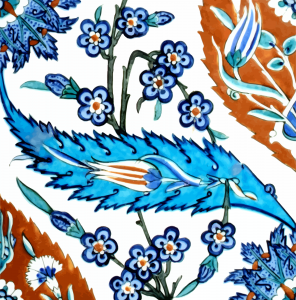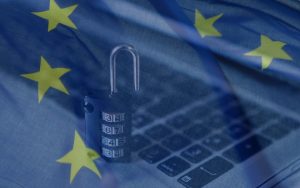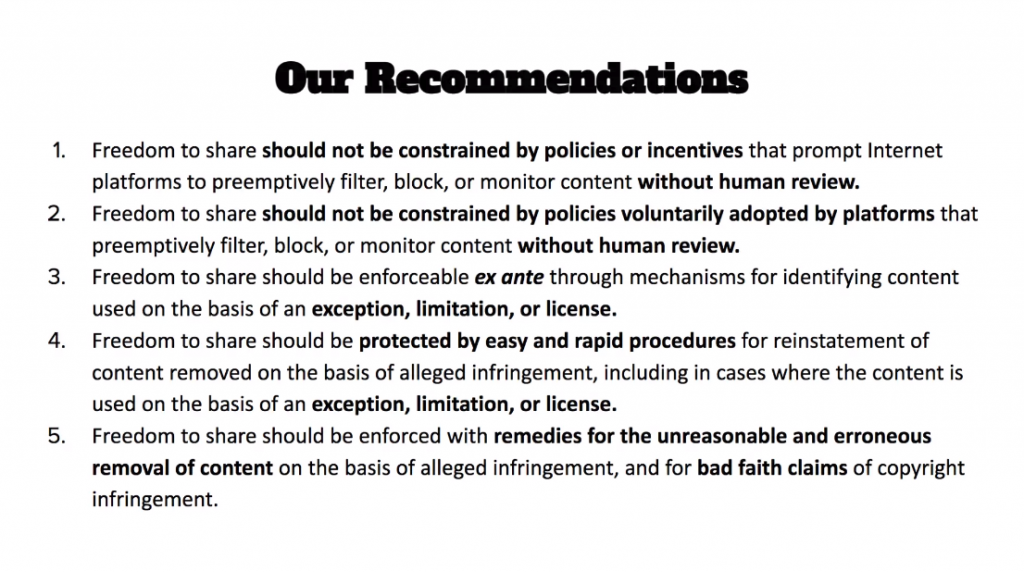On January 18, 2012, the web went dark in protest of the Stop Online Piracy Act (SOPA) and the Protect IP Act (PIPA), two bills introduced into the United States House and Senate in the last quarter of 2011.
Why are we talking about this day ten years later?
The fight for a global internet, access to information, and better sharing that benefits public interests are far from over. Because there are still many threats and SOPA-like provisions in other bills. Because many of the feared outcomes of the bill proposed in 2012 – website shutdowns, censorship to free speech, and domain seizures – are happening today.
Here is a simplified overview of SOPA/PIPA.
SOPA and PIPA aimed to tighten U.S. laws to curb copyright infringement and counterfeiting, particularly focusing on illegal copies of media – films, TV shows, music – hosted on foreign servers. The bills aimed to block sites and order financial services to shut off anyone associated with a site.
If passed, the U.S. Department of Justice and rights holders could use court orders to take down entire websites based upon a single piece of content, or linked content, on that site. Internet service providers (ISPs) would block users using Domain Name System (DNS) blocking.
While the bills intended to stop piracy, they were vaguely written with disastrous consequences. For example:
- DNS blocking sets a global precedent and disrupts internet architecture.
- Cybersecurity, and the possibility of Americans opting to use foreign DNS services to reach sites, was concerning.
- Ideologically, the bills undermine the foundational structure of the global internet, cultural communication, free speech, economic innovation, and how people create, find, discuss, and share information lawfully online.
Dubbed the Internet Blacklist Bill, Creative Commons (CC) joined other like-minded organizations in 2012 to raise awareness about the dangers and fight the bills. As Congress continued to debate before the Jan 24 vote on SOPA, organizer Fight for the Future, watchdog groups, content creators, activists, and millions of American citizens participated in a more aggressive communication strategy to get the attention of Congress – a symbolic internet blackout and messaging protest.
On January 18, 2012:
- 50,000 websites went dark including Wikipedia, Reddit, Boing Boing, and Craigslist.
- 162 million people visited Wikipedia.
- 115,000 sites, including Creative Commons, altered web pages with banners and messages opposing SOPA and PIPA with links to Congress.
- Google blacked out its logo and generated over 7 million signatures on its petition.
- Electronic Frontier Foundation reported more than 1 million emails were sent to congress using their site.
- MSNBC reported over 2.4 million Twitter messages about SOPA/PIPA.
- 887,000 people phoned congress.
- Time reported that before the day had ended, “the political dominoes began to fall…then trickle turned into flood.”
- The Washington Post said, “This is what happens when you make the internet mad.”
- The New York Times said this sent “an unmistakable message to lawmakers grappling with new media issues: Don’t mess with the Internet.”
As a result, SOPA was tabled, and PIPA was postponed.
January 18 is an historic marker of solidarity, a public interest victory.
As so, ten years later, Creative Commons again joins many organizations to reflect and continue the work. Please join us, and many others, by attending a series of SOPA Plus 10 events starting January 18, 2022. Our goal is to promote the values of free and open internet, build a better internet, improve access to information, and generate better sharing of news information.
community events
COMMEMORATING #sopa plus 10
This list will be updated as new events are added, and registrations become available.
| DATE |
EVENT/RECOGNITION |
ORGANIZER |
DETAILS |
| January 17 (ongoing) |
10 years of what SOPA/PIPA’s demise made possible |
Re:Create |
|
| January 17-21 |
Copyright Week |
Electronic Frontier Foundation |
Agenda |
January 18
11:00 a.m. -12:30 p.m. EST |
Regulating the Internet Ten Years after the SOPA/PIPA Blackout |
Georgetown Law
and Wikimedia Foundation |
Info and Registration |
| January 18 (ongoing) |
Better Internet Conversation and Articles |
Public Knowledge |
PK Website Link |
| January 18 (ongoing) |
Better Internet Series |
Creative Commons and Global Summit Partners |
CC Series Link |
| January 18
1:00 p.m. PST |
Privacy event with Library Freedom Project, George Christian of the Connecticut Four, and Sarah Lamdan of CUNY |
Library Futures |
More Information |
| January 19 |
Event: A look back on SOPA. A look ahead for what’s next |
COPIA |
|
| January 20 |
Public Domain Day Observed: Celebration of Sound |
Internet Archive
Creative Commons
Other Leaders from Open World |
Three ways to celebrate Public Domain in 2022 |
January 20
7:00 p.m. UTC
2:00 p.m. EST |
Better News: Open Internet and Journalism (webinars aimed at journalists) |
Creative Commons |
Google News Initiative and CC will reflect on the challenges and opportunities at the intersection of technology, journalism, and social power. |
| January 21 |
SOPA 10 Years Out: Startups and User Generated Content |
Engine Advocacy |
Will discuss intermediary liability frameworks aimed at Hill staff and members of the public interest and technology policy communities. |
| January 27
4:30 p.m. UTC
11:30 a.m. EST |
Better News Series: Addressing Misinformation and Disinformation Campaigns: A Community Led Approach |
Creative Commons |
This conversation will highlight Wikimedia Foundation’s technical perspective and community lead approach to addressing mis/disinformation campaigns. |
| February 8
2:00 p.m. UTC
9:00 a.m. EST |
Better News Series: Risks with Digital Platforms, Language and Narrative Power |
Creative Commons |
Speakers will explore risks of digital platforms: further marginalizing languages, spreading disinformation, and perpetuating power structures in India and globally. |
| February 15
2:00 p.m. UTC
9:00 a.m. EST |
Better News Series: Gunfire and Ground truth, Investigative Journalism Using Creative Commons |
Creative Commons |
Cecília Oliviera (Investigative journalist and founder of Fogo Cruzado) will discuss developing and using crowd-sourcing on an open platform as an investigative tool in journalism focused on drug and arms trafficking. |
| March 1
TBC |
Better News Series: CC licenses and combatting disinformation campaigns through better sharing |
Creative Commons |
This discussion will explore how CC licenses increase better information sharing in global journalism. |
| March 23
2:00 pm-6:00 pm UTC
10:00 am-2:00 pm EDT |
Better News Series: Free Online Training |
Creative Commons |
Creative Commons staff will provide free training on the basics of copyright for journalists, how to best find and reuse openly licensed resources such as research, photos, videos, music, and more! |
The post SOPA Plus 10, reflections and continued work appeared first on Creative Commons.

 Take our survey in English.
Take our survey in English. Répondez à notre sondage en français.
Répondez à notre sondage en français. Responde a nuestra encuesta en español.
Responde a nuestra encuesta en español.




